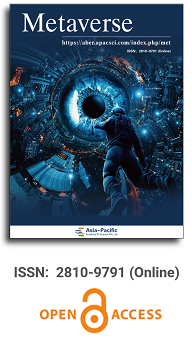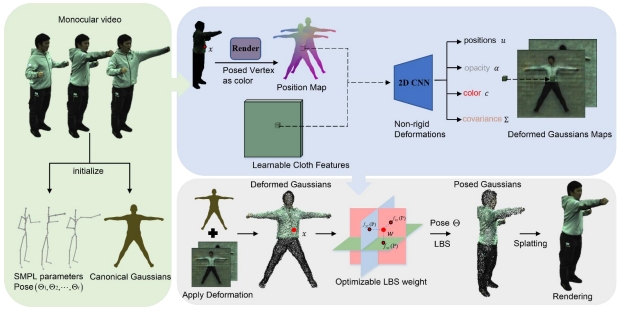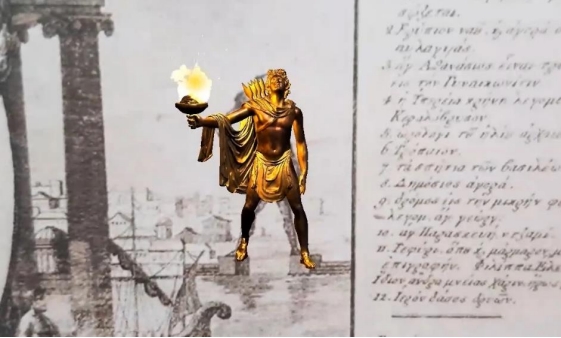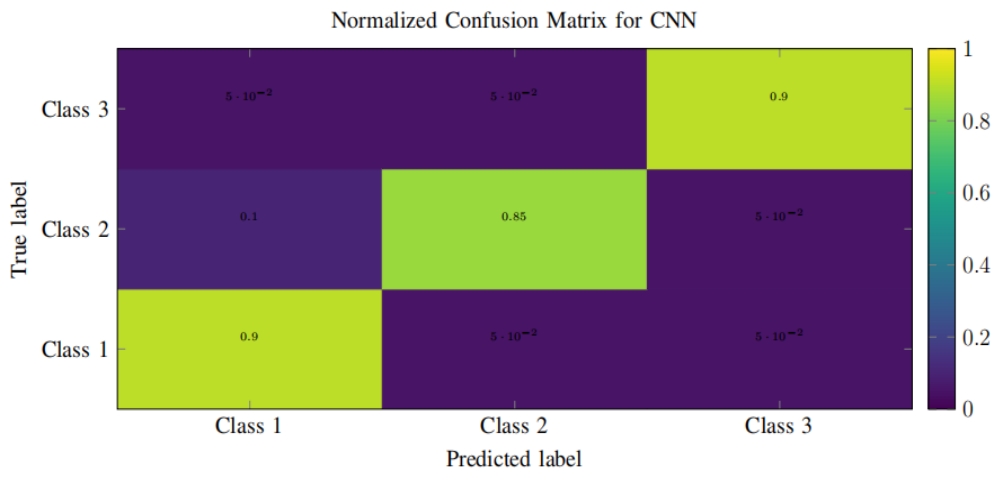
Asia Pacific Academy of Science Pte. Ltd. (APACSCI) specializes in international journal publishing. APACSCI adopts the open access publishing model and provides an important communication bridge for academic groups whose interest fields include engineering, technology, medicine, computer, mathematics, agriculture and forestry, and environment.



Enhanced inclusion and accessibility in education and training through virtual worlds
Vol 5, Issue 2, 2024
Download PDF
Abstract
Based on the evolution of immersive technologies, both in software and hardware, this article proposes a methodology for creating accessible and inclusive virtual worlds, with potential impacts on education, training, and lifelong learning. Through this paradigm, the combination of real and virtual cosmos generates new challenges in accessibility and inclusion. The co-existence of virtuality in tangible real life could be extended respectively in a wide spectrum of everyday life for enhanced inclusion and accessibility. New business models and even more accessible services in training and education could be raised through this suggestion. Metaverse, omniverse, and the advancements in extended reality equipment are the main allies in this endeavor. Artificial intelligence and enhanced experiences via advanced immersion could find easily their role in the context of meaningful virtual worlds in lifelong learning. As we are in the dove of the Metaverse era this is a unique opportunity to build accessible and inclusive virtual worlds from the very beginning.
Keywords
References
- Lv Z, Xie S, Li Y, et al. Building the metaverse using digital twins at all scales, states, and relations. Virtual Reality & Intelligent Hardware. 2022; 4(6): 459-470. doi: 10.1016/j.vrih.2022.06.005
- Wang H, Ning H, Lin Y, et al. A Survey on the Metaverse: The State-of-the-Art, Technologies, Applications, and Challenges. IEEE Internet of Things Journal. 2023; 10(16): 14671-14688. doi: 10.1109/jiot.2023.3278329
- Mystakidis S. Metaverse. Encyclopedia. 2022; 2(1): 486-497. doi: 10.3390/encyclopedia2010031
- Ritterbusch GD, Teichmann MR. Defining the Metaverse: A Systematic Literature Review. IEEE Access. 2023; 11: 12368-12377. doi: 10.1109/access.2023.3241809
- Meta: Building the Metaverse responsibly. Available online: https://about.fb.com/news/2021/09/building-the-metaverse-responsibly/ (accessed on 26 November 2024).
- NVIDIA Developer: Develop on NVIDIA Omniverse Platform. Available online: https://developer.nvidia.com/omniverse# (accessed on 26 November 2024).
- Shaping Europe’s digital future: An EU initiative on Web 4.0 and virtual worlds. Available online: https://digital-strategy.ec.europa.eu/en/library/eu-initiative-virtual-worlds-head-start-next-technological-transition (accessed on 26 November 2024).
- Towards the next technological transition: Commission presents EU strategy to lead on Web 4.0 and virtual worlds. Available online: https://ec.europa.eu/commission/presscorner/detail/en/ip_23_3718 (accessed on 26 November 2024).
- Unity real-time development platform. Available online: https://unity.com/ (accessed on 26 November 2024).
- Unreal Engine, the most powerful real-time 3D creation tool. Available online: https://www.unrealengine.com/ (accessed on 26 November 2024).
- Coronado E, Itadera S, Ramirez-Alpizar IG. Integrating Virtual, Mixed, and Augmented Reality to Human–Robot Interaction Applications Using Game Engines: A Brief Review of Accessible Software Tools and Frameworks. Applied Sciences. 2023; 13(3): 1292. doi: 10.3390/app13031292
- Vohera C, Chheda H, Chouhan D, et al. Game Engine Architecture and Comparative Study of Different Game Engines. In: Proceedings of 2021 12th International Conference on Computing Communication and Networking Technologies (ICCCNT); 6–8 July 2021; Kharagpur, India.
- Ververidis D, Migkotzidis P, Nikolaidis E, et al. An authoring tool for democratizing the creation of high-quality VR experiences. Virtual Reality. 2022, 26: 105-124. doi: 10.1007/s10055-021-00541-2
- Yang T, Kim JR, Jin H, et al. Recent Advances and Opportunities of Active Materials for Haptic Technologies in Virtual and Augmented Reality. Advanced Functional Materials. 2021; 31(39). doi: 10.1002/adfm.202008831
- van Wegen M, Herder JL, Adelsberger R, et al. An Overview of Wearable Haptic Technologies and Their Performance in Virtual Object Exploration. Sensors. 2023; 23(3): 1563. doi: 10.3390/s23031563
- Kuhail MA, Berengueres J, Taher F, et al. Haptic Systems: Trends and Lessons Learned for Haptics in Spacesuits. Electronics. 2023; 12(8): 1888. doi: 10.3390/electronics12081888
- Tong Q, Wei W, Zhang Y, et al. Survey on Hand-Based Haptic Interaction for Virtual Reality. IEEE Transactions on Haptics. 2023; 16(2): 154-170. doi: 10.1109/toh.2023.3266199
- Bhatia A, Hornbæk K, Seifi H. Augmenting the feel of real objects: An analysis of haptic augmented reality. International Journal of Human-Computer Studies. 2024; 185: 103244. doi: 10.1016/j.ijhcs.2024.103244
- Adilkhanov A, Rubagotti M, Kappassov Z. Haptic Devices: Wearability-Based Taxonomy and Literature Review. IEEE Access. 2022; 10: 91923-91947. doi: 10.1109/access.2022.3202986
- Adibi S, Rajabifard A, Shojaei D, et al. Enhancing Healthcare through Sensor-Enabled Digital Twins in Smart Environments: A Comprehensive Analysis. Sensors. 2024; 24(9): 2793. doi: 10.3390/s24092793
- Nica E, Popescu GH, Poliak M, et al. Digital Twin Simulation Tools, Spatial Cognition Algorithms, and Multi-Sensor Fusion Technology in Sustainable Urban Governance Networks. Mathematics. 2023; 11(9): 1981. doi: 10.3390/math11091981
- Asad U, Khan M, Khalid A, et al. Human-Centric Digital Twins in Industry: A Comprehensive Review of Enabling Technologies and Implementation Strategies. Sensors. 2023; 23(8): 3938. doi: 10.3390/s23083938
- Luther W, Baloian N, Biella D, et al. Digital Twins and Enabling Technologies in Museums and Cultural Heritage: An Overview. Sensors. 2023; 23(3): 1583. doi: 10.3390/s23031583
- Rong Y, Leemann T, Nguyen TT, et al. Towards Human-Centered Explainable AI: A Survey of User Studies for Model Explanations. IEEE Transactions on Pattern Analysis and Machine Intelligence. 2024; 46(4): 2104-2122. doi: 10.1109/tpami.2023.3331846
- Qayyum A, Butt MA, Ali H, et al. Secure and Trustworthy Artificial Intelligence-extended Reality (AI-XR) for Metaverses. ACM Computing Surveys. 2024; 56(7): 1-38. doi: 10.1145/3614426
- Dwivedi R, Dave D, Naik H, et al. Explainable AI (XAI): Core Ideas, Techniques, and Solutions. ACM Computing Surveys. 2023; 55(9): 1-33. doi: 10.1145/3561048
- Chaddad A, Peng J, Xu J, et al. Survey of Explainable AI Techniques in Healthcare. Sensors. 2023; 23(2): 634. doi: 10.3390/s23020634
- Bandi A, Adapa PVSR, Kuchi YEVPK. The Power of Generative AI: A Review of Requirements, Models, Input–Output Formats, Evaluation Metrics, and Challenges. Future Internet. 2023; 15(8): 260. doi: 10.3390/fi15080260
- Blackmore KL, Smith SP, Bailey JD, et al. Integrating Biofeedback and Artificial Intelligence into eXtended Reality Training Scenarios: A Systematic Literature Review. Simulation & Gaming. 2024; 55(3): 445-478. doi: 10.1177/10468781241236688
- Ooi KB, Tan GWH, Al-Emran M, et al. The Potential of Generative Artificial Intelligence Across Disciplines: Perspectives and Future Directions. Journal of Computer Information Systems. 2023; 1-32. doi: 10.1080/08874417.2023.2261010
- Chamusca IL, Ferreira CV, Murari TB, et al. Towards Sustainable Virtual Reality: Gathering Design Guidelines for Intuitive Authoring Tools. Sustainability. 2023; 15(4): 2924. doi: 10.3390/su15042924
- Han J, Liu G, Gao Y. Learners in the Metaverse: A Systematic Review on the Use of Roblox in Learning. Education Sciences. 2023; 13(3): 296. doi: 10.3390/educsci13030296
- Herath HMKKMB, Mittal M, Kataria A. Navigating the metaverse: A technical review of emerging virtual worlds. WIREs Data Mining and Knowledge Discovery. 2024; 14(4). doi: 10.1002/widm.1538
- Manda VK. Building Blocks, Opportunities, and Challenges of Metaverse in Web 3.0. Decentralizing the Online Experience with Web3 Technologies. 2024; 168-188. doi: 10.4018/979-8-3693-1532-3.ch008
- Koo C, Kwon J, Chung N, et al. Metaverse tourism: conceptual framework and research propositions. Current Issues in Tourism. 2022; 26(20): 3268-3274. doi: 10.1080/13683500.2022.2122781
- Dahan NA, Al-Razgan M, Al-Laith A, et al. Metaverse Framework: A Case Study on E-Learning Environment (ELEM). Electronics. 2022; 11(10): 1616. doi: 10.3390/electronics11101616
- Wang M, Yu H, Bell Z, et al. Constructing an Edu-Metaverse Ecosystem: A New and Innovative Framework. IEEE Transactions on Learning Technologies. 2022; 15(6): 685-696. doi: 10.1109/tlt.2022.3210828
- Williams D. The Mapping Principle, and a Research Framework for Virtual Worlds. Communication Theory. 2010; 20(4): 451-470. doi: 10.1111/j.1468-2885.2010.01371.x
- Hua G, Haughton D. Virtual worlds adoption: a research framework and empirical study. Online Information Review. 2009; 33(5): 889-900. doi: 10.1108/14684520911001891
- Girvan C. What is a virtual world? Definition and classification. Educational Technology Research and Development. 2018; 66(5): 1087-1100. doi: 10.1007/s11423-018-9577-y
- Bojic L. Metaverse through the prism of power and addiction: what will happen when the virtual world becomes more attractive than reality? European Journal of Futures Research. 2022; 10(1). doi: 10.1186/s40309-022-00208-4
- Shen B, Tan W, Guo J, et al. A Study on Design Requirement Development and Satisfaction for Future Virtual World Systems. Future Internet. 2020; 12(7): 112. doi: 10.3390/fi12070112
- Jaheer Mukthar KP, Sivasubaramanian K, Reyes-Reyes C, et al. Intelligent Systems, Business, and Innovation Research. Springer Nature Switzerland; 2024.
- Hennig-Thurau T, Aliman DN, Herting AM, et al. Social interactions in the metaverse: Framework, initial evidence, and research roadmap. Journal of the Academy of Marketing Science. 2022; 51(4): 889-913. doi: 10.1007/s11747-022-00908-0
- Radanliev P, De Roure D, Novitzky P, et al. Accessibility and inclusiveness of new information and communication technologies for disabled users and content creators in the Metaverse. Disability and Rehabilitation: Assistive Technology. 2023; 19(5): 1849-1863. doi: 10.1080/17483107.2023.2241882
- Dudley J, Yin L, Garaj V, et al. Inclusive Immersion: a review of efforts to improve accessibility in virtual reality, augmented reality and the metaverse. Virtual Reality. 2023; 27(4): 2989-3020. doi: 10.1007/s10055-023-00850-8
- Othman A, Chemnad K, Hassanien AE, et al. Accessible Metaverse: A Theoretical Framework for Accessibility and Inclusion in the Metaverse. Multimodal Technologies and Interaction. 2024; 8(3): 21. doi: 10.3390/mti8030021
- Zhao Y, Jiang J, Chen Y, et al. Metaverse: Perspectives from graphics, interactions and visualization. Visual Informatics. 2022; 6(1): 56-67. doi: 10.1016/j.visinf.2022.03.002
- Anastasovitis E, Ververidis D, Nikolopoulos S, et al. Digiart: Building new 3D cultural heritage worlds. In: Proceedings of the 2017 3DTV Conference: The True Vision-Capture, Transmission and Display of 3D Video (3DTV-CON); 7-9 June 2017; Copenhagen, Denmark, IEEE, pp. 1-4. doi: 10.1109/3dtv.2017.8280406
- Chen L, Peng S, Zhou X. Towards efficient and photorealistic 3D human reconstruction: A brief survey. Visual Informatics. 2021; 5(4): 11-19. doi: 10.1016/j.visinf.2021.10.003
- Nebel S, Beege M, Schneider S, et al. A Review of Photogrammetry and Photorealistic 3D Models in Education From a Psychological Perspective. Frontiers in Education. 2020; 5. doi: 10.3389/feduc.2020.00144
- Wang C, Wen C, Dai Y, et al. Urban 3D modeling using mobile laser scanning: a review. Virtual Reality & Intelligent Hardware. 2020; 2(3): 175-212. doi: 10.1016/j.vrih.2020.05.003
- Anastasovitis E, Roumeliotis M. Transforming computed tomography scans into a full-immersive virtual museum for the Antikythera Mechanism. Digital Applications in Archaeology and Cultural Heritage. 2023, 28: e00259. doi: 10.1016/j.daach.2023.e00259
- Regassa Hunde B, Debebe Woldeyohannes A. Future prospects of computer-aided design (CAD)—A review from the perspective of artificial intelligence (AI), extended reality, and 3D printing. Results in Engineering. 2022; 14: 100478. doi: 10.1016/j.rineng.2022.100478
- Zhang F, Chan APC, Darko A, et al. Integrated applications of building information modeling and artificial intelligence techniques in the AEC/FM industry. Automation in Construction. 2022; 139: 104289. doi: 10.1016/j.autcon.2022.104289
- Meta Quest 3: New Mixed Reality VR headset. Available online: https://www.meta.com/quest/quest-3/ (accessed on 26 November 2024).
- Apple Vision Pro. Available online: https://www.apple.com/apple-vision-pro/ (accessed on 26 November 2024).
- Pico 4: All-in-One VR headset. Available online: https://www.picoxr.com/global/products/pico4 (accessed on 26 November 2024).
- Vive XR Elite. Available online: https://www.vive.com/us/product/vive-xr-elite/overview/ (accessed on 26 November 2024).
- Aiordăchioae A, Calinciuc A, Schipor MD. Integrating Extended Reality and Neural Headsets for Enhanced Emotional Lifelogging: A Technical Overview. 2024 International Conference on Development and Application Systems (DAS). 2024; 1-6. doi: 10.1109/das61944.2024.10541184
- Tewell J, Ranasinghe N. A Review of Olfactory Display Designs for Virtual Reality Environments. ACM Computing Surveys. 2024; 56(11): 1-35. doi: 10.1145/3665243
- Khan LU, Guizani M, Niyato D, et al. Metaverse for wireless systems: Architecture, advances, standardization, and open challenges. Internet of Things. 2024; 25: 101121. doi: 10.1016/j.iot.2024.101121
- Yazıcı AM, Özkan A, Özkan H. Meta: XR-AR-MR and Mirror World Technologies Business Impact of Metaverse. Journal of Metaverse. 2024; 4(1): 21-32. doi: 10.57019/jmv.1344489
- Angelov P, Soares E. Towards explainable deep neural networks (xDNN). Neural Networks. 2020; 130: 185-194. doi: 10.1016/j.neunet.2020.07.010
- Ioannides M, Fink E, Cantoni L, et al. Digital Heritage. Progress in Cultural Heritage: Documentation, Preservation, and Protection. Springer International Publishing; 2021.
- Think XR. Available online: https://think-xr.si/ (accessed on 26 November 2024).
- Vol3DEdu. Available online: https://vol3dedu.eu / (accessed on 26 November 2024).
- XR4ED. Available online: https://xr4ed.eu/ (accessed on 26 November 2024).
- XR2Learn. Available online: https://xr2learn.eu/ (accessed on 26 November 2024).
- MASTER. Available online: https://www.master-xr.eu/project/ (accessed on 26 November 2024).
- BRIDGES. Available online: https://www.bridges-horizon.eu/project/ (accessed on 26 November 2024).
- XR Initiative. Available online: https://ai.umich.edu/xr-initiative/ (accessed on 26 November 2024).
- VReduMED. Available online: https://www.interreg-central.eu/projects/vredumed/ (accessed on 26 November 2024).
- Alliance4XR. Available online: https://alliance4xr.eu/the-project-2/ (accessed on 26 November 2024).
- Anastasovitis E, Roumeliotis M. Enhanced and Combined Representations in Extended Reality through Creative Industries. Applied System Innovation. 2024; 7(4): 55. doi: 10.3390/asi7040055
- Mehta A, Wangmo T, Dorji S. Navigating New Worlds of Spatial Computing’s Role in Building Immersive Experiences. Algorithm Asynchronous. 2024; 2(1): 15-36. doi: 10.61963/jaa.v2i1.82
Supporting Agencies
Copyright (c) 2024 Eleftherios Anastasovitis, Manos Roumeliotis
License URL: https://creativecommons.org/licenses/by/4.0/

This site is licensed under a Creative Commons Attribution 4.0 International License (CC BY 4.0).

Prof. Zhigeng Pan
Professor, Hangzhou International Innovation Institute (H3I), Beihang University, China

Prof. Jianrong Tan
Academician, Chinese Academy of Engineering, China
Conference Time
December 15-18, 2025
Conference Venue
Hong Kong Convention and Exhibition Center (HKCEC)
...
Metaverse Scientist Forum No.3 was successfully held on April 22, 2025, from 19:00 to 20:30 (Beijing Time)...
We received the Scopus notification on April 19th, confirming that the journal has been successfully indexed by Scopus...
We are pleased to announce that we have updated the requirements for manuscript figures in the submission guidelines. Manuscripts submitted after April 15, 2025 are required to strictly adhere to the change. These updates are aimed at ensuring the highest quality of visual content in our publications and enhancing the overall readability and impact of your research. For more details, please find it in sumissions...






.jpg)
.jpg)

